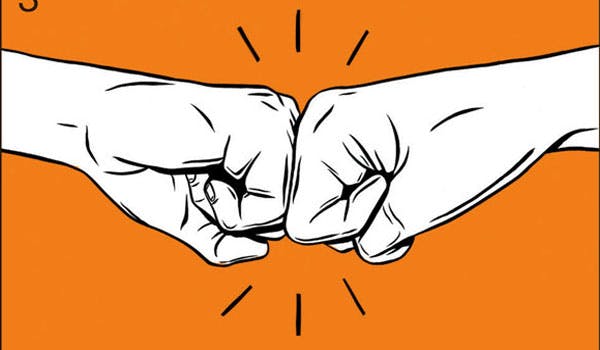In business, a strong handshake stands for a lot. It’s a greeting, it’s a mark of respect, and most importantly – no deal is truly sealed until it has been shaken on.
But what if you unwittingly make the very person you’re striving to impress gravely ill?
According to researchers at Aberystwyth University in Wales, who recently had their findings published in the American Journal of Infection Control, the days of hand shaking need to become a thing of the past.
Not that we’ll be left high and try without a hand gesture though. The solution lies in the fist bump.
“Adoption of the fist bump as a greeting could substantially reduce the transmission of infectious disease between individuals,” the paper says.
Indeed a strong, somewhat extended handshake is almost twice as effective as a weak one in transferring bacteria such as E. coli from one person to another.
What’s more, a “moderately strong” handshake, transfers about twice as many bacteria as a high-five. But best of all, the fist bump even beats the high-five in the hygiene stakes.
The simple experiment which uncovered these findings involved dipping a gloved hand into a dense culture of Escherichia coli, a bacterium commonly found in human intestines. The two test subjects then shook hands, bumped fists or high-fived with a person wearing a sterile glove. They repeated the tests several times and analysed the gloves for transmission of germs.
Lead author, Ph.D. candidate Sara Mela, said in particular the practice of shaking hands in hospitals should be closely considered. “If someone extends a hand, of course you shake, but in certain environments — hospitals in particular, where are there a large number of disease-causing organisms and many people at risk — you ought to think about what’s happening when you have direct contact,” Ms Mela said.
So the results may be in, but what chance is there of implementing this change in broader society?
In Germany, perhaps the outlawing of handshakes could be spearheaded by the ‘Knigge Society’ – a self-appointed group which advises on etiquette and social behaviour. They have previously called for kissing to be banned in the workplace, stating that the greeting colleagues and business partners with a kiss on the cheek is uncomfortable for many Germans.

